PRESIDENT’S MESSAGE
 Spring is here, soon to be followed by summer and with it comes the 2023 PSWA Conference, set for July 14-16, with the pre-conference workshop on Thursday, July 13. There is still time to register for this excellent event.
Spring is here, soon to be followed by summer and with it comes the 2023 PSWA Conference, set for July 14-16, with the pre-conference workshop on Thursday, July 13. There is still time to register for this excellent event.
I have attended the workshop a few times, and have learned so much from the presenters, all experienced multi-published authors. Besides the knowledge gained, the attendees can get a free 30-page manuscript review by one of the instructors. If you haven’t been to the PSWA website lately, take a look. All you need to know about the group, the writing competition and the conference is there- www.policewriter.com.
Once again, there will be a full line-up of panels and solo presenters. The topics of the panels and the solo presentations vary and cover many aspects of public safety, of value to all in their writing endeavors, and I’m sure Mike Black, our conference program director will have more to say on the conference in this newsletter.
On another note, there will be some changes in the makeup of the board effective July 17. Bob Calkins will be resigning as our treasurer, and Kelli Peacock will be assuming the position. We have someone who is interested in assuming Kelli’s duties as the newsletter letter editor.
Bob has done an excellent job as our treasurer, and I can’t thank him enough for his dedication to the PSWA.
I continue to be impressed with the wealth of knowledge within our members, and their willingness to share their expertise and advice with others. I know I have benefitted greatly from their help when I needed it.
I have learned during the last 20 years of membership that it doesn’t matter how many books an author has had published, there is always room to learn, and I am grateful to be able to draw on others for help in making my books the best they can be.
This year, as we did last year, we are offering all our members the opportunity to purchase space in the conference program to advertise their work, whether they are attending the conference or not. Again, more info is at the webpage in the dropdown menu of the “conference” tab.
We have made some changes in the schedule of the conference, which we are trying out this year. For example, the writing competition awards has been changed to Saturday evening. Barbara Hodges will hopefully have more to say on this in her submission. I heard thru the grapevine it is a very competitive slate of entries from many very talented writers, and I particularly like that the competition highlights the talents of so many of our members. Of course, the ultimate goal is to become an award-winning author!
We will also have several free drawings during the conference, with some very nice prizes donated by members, and a wonderful grand prize to be given away at the end of the conference.
All in all, this is one conference you shouldn’t miss! Sign up soon before the deadline arrives.
I would like to thank all who have worked so diligently in organizing the conference. Know that your efforts are greatly appreciated.
I look forward to seeing you all at the conference, old friends and new alike.
—John Schembra
President, PSWA
VICE PRESIDENT MESSAGE
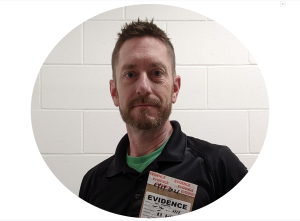 As we get closer to the 2023 PSWA conference, I took a moment to reflect on a writer’s retreat I recently hosted at my Police Academy. We called it Cop Camp. Ten authors came to our academy for a long weekend of learning police skills and getting time to write while immersed in the policing environment.
As we get closer to the 2023 PSWA conference, I took a moment to reflect on a writer’s retreat I recently hosted at my Police Academy. We called it Cop Camp. Ten authors came to our academy for a long weekend of learning police skills and getting time to write while immersed in the policing environment.
A hot topic at the retreat was Artificial Intelligence, AI. Authors using AI such as SudoWrite seems to be a hot topic in the writing community. As we venture into this new era, it is essential to address some common myths surrounding the use of AI. By discussing this topic, authors can gain a clearer understanding of how AI can enhance their creative process and unlock new possibilities in their storytelling endeavors.
Myth 1: AI will replace human authors
One of the most prevalent myths surrounding AI is the fear that it will replace human authors entirely. However, AI should be seen as a valuable tool rather than a replacement. While AI can assist in generating ideas, editing, and providing insights, it lacks the inherent human creativity, intuition, and emotions necessary for crafting compelling stories. Authors bring a unique perspective, imagination, and depth to their work that cannot be replicated by AI.
Myth 2: AI removes writer’s block
Writer’s block is a common challenge that authors face, and some believe that AI can eradicate it completely. However, the creative process is complex, and inspiration often comes from unexpected sources. While AI can provide prompts, and suggestions, and even help generate content, it cannot replace the organic flow of ideas that springs from a writer’s imagination. Embracing AI as a tool to overcome writer’s block can be helpful, but it is important to remember that true inspiration and breakthroughs often come from within.
Myth 3: AI lacks authenticity
Critics argue that stories generated by AI lack authenticity and emotional depth, believing that AI is incapable of producing narratives that resonate with readers. While it is true that AI-generated content lacks the human touch, it does not mean that AI cannot contribute to the creative process. AI can be used to augment an author’s work. Side character name generation, location description assistance, and editorial passes before turning over to a human editor.
Technology has a habit of disrupting art. When cameras were invented painters said it would ruin artistic imagery. Years later when digital photography and photoshop came along photographers said it would destroy artistic imagery. Yet the art world still has painters. Professional photographers continue to be in demand. At the end of the day AI is a tool, and it is up to both writers and readers to decide to what extent these tools are used.
—RJ Beam
Vice President, PSWA
Secretary’s Column
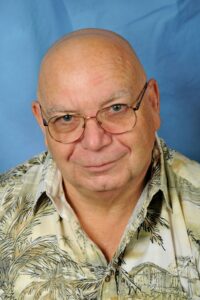 Well, our annual conference is almost upon us. There is a lot of destruction/construction going on. The I 15 Interstate is having lots of work being done to modernize the highway. That means a longer ride from the airport to the Orleans Hotel.
Well, our annual conference is almost upon us. There is a lot of destruction/construction going on. The I 15 Interstate is having lots of work being done to modernize the highway. That means a longer ride from the airport to the Orleans Hotel.
There are some things about our hotel, the Orleans, that I want to bring to your attention. First of all, it is a safe hotel, with security patrolling in vehicles and bicycles. If you want to travel around town, there are both taxis and ride share waiting at the hotel to take you to your desired destination. The Las Vegas Strip is a short car ride away.
If you have a question about an attraction chat with the concierge in the lobby of the hotel. They are there to assist you. Don’t forget to bring your bathing suit and enjoy the hotel’s pool. And if you do forget your swim gear, you can always buy new in either the hotel gift shop or the outlet malls. Check with the concierge to see what venues are having entertainment while you’re staying in Las Vegas. The shows are as good as they ever were.
Some sites to see while playing the part of the tourist is the large Ferris Wheel, behind the Linq, zip cord riding at the Freemont Street Experience, the Pawn Shop from Pawn Stars seen on the History Channel. The electric light show at the Freemont Street Experience is the old Las Vegas you see in vintage movies and tv shows.
Food is available at the Orleans. There are a number of restaurants and snack bars open. A well-kept secret is the bowling alley at the Orleans. Not only is it good for bowling, but it is also a good place to sit and have coffee and a snack while you watch someone try and roll a 300. If bowling doesn’t appeal to you, there are plenty of movie theaters within the hotel.
Your board has worked to make this conference the best one so far. Come to Las Vegas and learn something new and make new friends who are willing to share their knowledge with you.
—Keith Bettinger
Secretary, PSWA
WRITING COMPETITION CHAIR
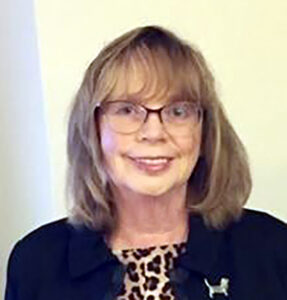 Oh, wow. I almost forgot to write my entry for the newsletter. It’s been hectic. The judging for the writing competition has ended. The scores have been tallied and the awards are being printed. Thank you Tim Dees for all of your help. And a big thank you the judges. Their comments to me, where all of the writers who entered made it hard on them. Some of the scores were only five or six points from first place to honorable mention. Also saw the same with the scores for the published fiction and non-fiction. First and second place in fiction was only two points. That’s what is great about four judges for the published books. Many times, the scores show a big difference, but when a book is a winner, it’s easy to see by the scores. After seeing the list of who is attending the conference, I’m bringing the authors who entered the published book competition, their books to them. The others were donated to two local senior mobile home parks. They will be enjoyed, I am sure. Next year there will be an option for the authors to include postage with their entries if they would like them returned.
Oh, wow. I almost forgot to write my entry for the newsletter. It’s been hectic. The judging for the writing competition has ended. The scores have been tallied and the awards are being printed. Thank you Tim Dees for all of your help. And a big thank you the judges. Their comments to me, where all of the writers who entered made it hard on them. Some of the scores were only five or six points from first place to honorable mention. Also saw the same with the scores for the published fiction and non-fiction. First and second place in fiction was only two points. That’s what is great about four judges for the published books. Many times, the scores show a big difference, but when a book is a winner, it’s easy to see by the scores. After seeing the list of who is attending the conference, I’m bringing the authors who entered the published book competition, their books to them. The others were donated to two local senior mobile home parks. They will be enjoyed, I am sure. Next year there will be an option for the authors to include postage with their entries if they would like them returned.
I am so looking forward to the Saturday night awards ceremony. I’m even going to wear a dress. I love that the winners will receive time for the attention they deserve. And it doesn’t hurt that the winning books will also be available for purchase the next day. You are going to want a copy of all of them. One perk of being the writing competition chairperson is I get to read them all.
I’m delighted with our free drawing items this year. Thirteen items and some great stuff is being given away, free entry to 2024 writers workshop, one free entry to the 2024 writing competition, editing from some of our great writers, a free audio book, and much more. Then of course the main event, attending the 2024 conference for free. And all the attendees at the conference are in the running for it. Even if you’ve already won one of the other drawing items.
Our goodie bags are also going to be extra special this year. One of the things I’m most excited about is Frank Scalise telling me about mini-books. They are the perfect way to publish longer short stories. He’s putting one in each of our goodie bags, and so am I. Frank is also including a coupon for a free download of one of his audio books.
All of this, plus our keynote speakers. And I don’t even know what gems our panels are going to offer us. This conference is going to be awesome.
I’m getting ready for a vacation to Hawaii. Jeff and I are leaving Saturday June 3rd. Jeff’s sister lives on the big island. It’s fun for us to see places the locals know about. The last time we visited they took us off road to a green sand beach. And I mean off road, we drove across a lava bed to get there. So, for now, aloha. And I’ll see many of you in July.
—Barbara M. Hodges
Writing Competition Chairperson, PSWA
ELEGANT EIGHTEEN PSWA CONFERENCE IS JUST AROUND THE CORNER
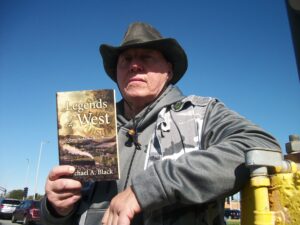 Get ready…
Get ready…
The Elegant Eighteen PSWA conference is scheduled for July 13-16, 2023, at the Orleans Hotel and Casino in Las Vegas, Nevada. Once again, (In case you’re wondering why I always include NV in my listing of the conference, there is a Las Vegas, New Mexico.) Once again the Pre-Conference Workshop, which begins at 9 am on Thursday morning, with my fellow instructors Mysti Berry and Kelli Peacock. I’m especially excited that the grand lady of the PSWA, Marilyn Meredith, will also be attending the workshop as one of the instructors. Our presentations will be on Writing Dynamic Openings, Writing Emotion, and Point of View. Workshop attendees also get a critique of their manuscript up to 30-some pages by one of the published author instructors. The workshop runs from 9 am to 3 pm in the Conference Center at the Orleans. The fee is in addition to the conference registration, but it’s well worth it. If you’re interested in improving your writing, check it out.
The conference check-in procedure follows the workshop. It begins in the conference center at 3 pm and continues until the start of the Thursday night get together at 5:45 pm. The get together is an informal and cozy gathering with delicious snacks and a cash bar, if you’re so inclined. It’s a wonderful way to meet new people or connect with old friends.
The conference itself gets rolling at 9 am the next morning on Friday. We’ve lined up some fabulous solo presenters including Jo Wilkins of Mystic Publishing taking you through the steps of publishing and promoting, our own Pete Klismet doing a shortened version of the class on Profiling that he used to teach at the FBI Academy, and PSWA Vice President and all-around super cop, RJ Beam telling us the ins and outs of crime scene processing. All three will be outstanding.
I’m very pleased to announce that we will once again have our publisher’s panel on Saturday. Jo Wilkins from Mystic Publishers will be on hand, as will former acquisitions and Christian editor, Jennifer Hendricks who will talk about hybrid publishing. Jake Bray from Wolfpack Publishing will be talking about the company’s Rough Edges imprint. And our own Barbara Hodges will also be on hand to talk about self-publishing, or as she terms it, Independent Publishing. To top it off, the panel will be moderated by successful author Thonie Hevron, who just launched a new series under a pseudonym for Rough Edges Press. You won’t want to miss this one.
And since our esteemed Writing Competition has grown to almost legendary status, we’ve moved our Awards Ceremony to Saturday night with a cash bar and delicious snacks. It’s bound to be the hit of the conference.
Stay tuned for more surprises once the panels are announced.
See you in Las Vegas, Nevada
—Michael A. Black
Program Chair, PSWA
NEWSLETTER EDITOR
 In approximately one month many of us will gather for our PSWA conference. I am excited, as I am every year, especially this year because of the awesome additions – more members information and members items in the goodie bags, the Saturday night awards ceremony, the drawings, and the huge response to advertising in the program. Thank you to all of you who are advertising. This is a great opportunity for members to advertise whether they attend the conference or not.
In approximately one month many of us will gather for our PSWA conference. I am excited, as I am every year, especially this year because of the awesome additions – more members information and members items in the goodie bags, the Saturday night awards ceremony, the drawings, and the huge response to advertising in the program. Thank you to all of you who are advertising. This is a great opportunity for members to advertise whether they attend the conference or not.
My goal is to attend a new conference in addition to the PSWA a year. This year I attended Left Coast Crime. It was in Tucson where I live so I couldn’t miss it. I connected with fellow PSWA members, people I knew from Tucson, and others I have met at other conferences. It was a great time, but not as intimate as our conference. We really have a wonderful conference. Every year I look forward to meeting new members and connecting with people I have already met. It is like a family reunion.
As John mentioned, I will be taking over as Treasurer. Bob has done a wonderful job and I have big shoes to step into. Thank you Bob.
I would like to take this time to thank everyone who submit articles and member news. I really enjoy reading them.
Now with a month to go I need to prepare the conference program. Please be advised I will be reaching out to conference attendees for pictures and questions about their bios.
I hope to see all of you at the conference in July. It will be one of the best.
—Kelli Peacock
Newsletter Editor, PSWA
THIS JUST IN – FOR THOSE ATTENDING THE CONFERENCE
Writers And Sliders!
Please join us for an evening of awards and celebration. Saturday Evening July 15, 2023. Doors open at 5:30 pm.
The menu of sliders has something for every appetite, as do the talented authors we are honoring.
A FINAL FAREWELL
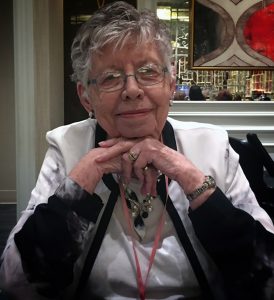 It is truly the final farewell, the end of my long running Deputy Tempe Crabtree mystery series.
It is truly the final farewell, the end of my long running Deputy Tempe Crabtree mystery series.
When I finished End of the Trail I thought I was done, but then I got an idea for yet another book that I just had to write—The Trash Harem.
That one made 20 books in the series and didn’t put an end to anything. One of my friends who has made an appearance in three of the mysteries as Miqui Sherwood asked me to give her a boyfriend in my next book. I thought about it for a long time and got an idea for the end of the series and how to fulfill my friend’s request. Of course, there’s a murder—and Tempe and Hutch’s lives are threatened.
It wasn’t an easy one to write because it meant saying goodbye to characters who’ve lived in my imagination for many years, and at the same time I was caring for a seriously ill husband. As you authors know, writing can be an escape as it takes you away from the hard events going on in your real world as you slip into the world of your imagination if only for short periods of time.
I’ll certainly miss Tempe, who is now retired, and her husband Hutch, but they can now travel as they’ve always wanted. Sounds like I think of them as real, doesn’t it? Of course, I do, they’ve been a part of my life for many years.
Does this mean I’ve stopped writing? Certainly not, I can’t imagine not writing.
I’m working on a short memoir about my childhood during World War II, probably more for my children and grands, but I’m having fun with it. It’s quite amazing what I remember, and what I can’t.
If you’re interested, here’s where you can find the books I mentioned in this article.
–Marilyn Meredith
MY EERIEST WRITING EXPERIENCE – WITH MALICE AFORETHOUGHT
 Writing With Malice Aforethought revealed a treasury of surprises for me. Authors like to
Writing With Malice Aforethought revealed a treasury of surprises for me. Authors like to
believe they create their worlds but truthfully, characters sometime hijack their own stories.
While planning the third novel in the Meredith Ryan series, I knew I wanted to have a bit of
romantic interest between the two lead characters, Meredith and her partner Nick Reyes. While
I’m an inveterate outliner, I always leave enough room for detours. They changed direction on
me a few times in the previous novel and felt I had to let them do the same again. They did. And
boy, did they surprise me. Especially the ending.
The plot revolves around a murder in the beautiful rural countryside of Sonoma County
(California). The homicide takes the deputies into the remote hills where they discover an active
militia planning an insidious attack on the local population. Even though I wrote this in 2017, the
story could be “ripped from today’s headlines.” Using the Southern Poverty Law Center, a
periodical that tracks hate crimes and anti-government movements, it was easy to dream up the
fictious domestic terrorists. Seeing parts of the story come true has been shocking.
Another eerie component which the author had little control over was the climax. Let me
explain: It was October 2017. Using my retired fire fighter husband as the best resource, I steered
my hero into a chase scene taking place during a huge wildfire in the Sonoma County hills. I
recall asking him about wildland fires-how they start and grow, what they feel like, the heat, the
smoke and flying embers…
While taking notes, I looked out a window and saw smoke. Not just smoke but a wall of it. A fire
had started at Sears Point Raceway mere miles from our Petaluma home. My husband, who is
not an alarmist, said to me, “If the wind is right, this fire can come right up to our back door.”
Thankfully, the local fire fighters put that fire out fast. But the smoke didn’t dissipate. It grew
thicker. Overnight, the Tubbs Fire in Santa Rosa, seventeen miles north of our home had erupted
and caused catastrophic loss of life and property damage. This was the atmosphere in which I
wrote the climax. I followed my outline, but drafting the story haunted me along with the smoke
outside and my husband’s recollections. It was creepy.
I often use natural disasters in my books. They are compelling plot twists that go beyond
character. By Force or Fear had a flood, a mudslide from torrential rains appears in Intent to
Hold, and this wildfire in With Malice Aforethought. All these incidents have an impact on the
characters in the story.
But by far, the wildfire in With Malice Aforethought is the eeriest.
–Thonie Hevron
HOW TO ANNOY YOUR READER
 What pet peeves set readers’ teeth on edge? A few months ago, my blog (www.vweisfeld.com) covered the results of a survey of Washington Post Book Club members about what they find irritating in the books they read. The responses were “a tsunami of bile” from hundreds and hundreds of readers. If you’re working on a book now or even thinking about it, check these red flags.
What pet peeves set readers’ teeth on edge? A few months ago, my blog (www.vweisfeld.com) covered the results of a survey of Washington Post Book Club members about what they find irritating in the books they read. The responses were “a tsunami of bile” from hundreds and hundreds of readers. If you’re working on a book now or even thinking about it, check these red flags.
Plot/Style/Clarity
Readers don’t like dreams. And why not? Is it because, as they’re starting to get a mental grip on story events, they suddenly hit that “and then I woke up” line that requires them to mentally erase what they just read? Or is it, as one respondent said, “They are always SO LITERAL.”
As you’d expect, readers take offence at historical anachronisms and factual inaccuracies. And they want authors to write with authenticity: “taking a cruise to Alaska is not enough to write a novel about the Last Frontier.”
Typos and grammar errors. Oh, boy. I confess I look up “lie” and “lay” nearly every time I use one of them (this was one of the errors singled out, along with popular misused homonyms). I’ve read those words used wrong so many times I’m not even sure what’s correct any more. To me, it’s worth the twenty seconds to check, so I don’t lie (ha-ha) awake at night, wondering.
Readers complained about books that are simply too long. Especially books by best-selling authors. Do they think “every word they write is golden and shouldn’t be cut?” one respondent wondered. And it isn’t just the whole book that’s too long, so are the prologues, chapters, descriptions, and everything else, especially those italicized passages. Italicized paragraphs hit a nerve with readers for some reason. Don’t do it, they say.
They complained about the trend to abandon quotation marks, which necessitates rereading a time or two to understand who’s speaking. Cormac McCarthy omits them (though, I admit, I don’t mind rereading him). Hilary Mantel had the opposite quirk. She kept the quotation marks but eliminated everything like “Cromwell said” or “said the Cardinal.” Sometimes who’s speaking really matters (especially if they’re saying, “Off with his head!”).
Gratuitously complicated timelines were another annoying source of confusion. The structure of a book should make it easier, not harder, to follow, readers believe.
Characterization
“Unrealistically clever children or talking animals?” No, please, readers said.
A big one that in my opinion we should have long since discarded is sexy descriptions of women in non-sexy situations. There’s a lot of cringy stuff focusing on a woman’s appearance, especially her figure, top and bottom, whereas male characters just show up. Need I mention such descriptions are almost always written by men? Perhaps this is just how men see women in real life, so that’s what they put on paper.
Readers also object to “disabled characters who exist only to provide treacly inspiration.” That holds for any character who is meant to demonstrate a point, like the protagonist’s open-mindedness: “See, he’s an OK guy; he has [a Black friend, a gay friend, a loyal dog]!” Authors need to give those friends and mutts some meaningful role.
Picking Nits
Somebody will object to almost anything: overused phrases like “his smile didn’t reach his eyes,” “she exhaled the breath she didn’t realize she was holding” (I encounter that one a lot). Even individual words would earn readers’ blue pencil: burgeoning, preternatural, inevitable, lugubrious. Me, I like long words, when they are the exactly right word.
A reader objected to “spelling based on sound, not a dictionary.” I recently read a novel that referred to riggers (not rigors) and emmersed (instead of immersed) and was stunned to read the author’s note complimenting her editor.” I, on the other hand, was pleased and surprised to see that such creatures still exist.
Post writer Ron Charles, who compiled these complaints, predicts that “somewhere some cynical, market-driven AI scientist is working on a novel-writing program that can accommodate all these complaints.” I hope not. Words written by a real person with real experiences and emotions—blind spots and annoying habits and grammar lapses and all—are preferable to a formula any day.
—Vicki Weisfeld
Website: www.vweisfeld.com
Your book club might enjoy my mystery/thriller, Architect of Courage, on sale now on Amazon and Barnes & Noble. Five book clubs have picked it so far!
SHOWING VS. TELLING
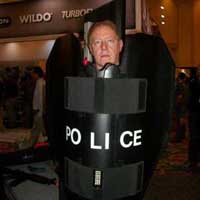 “Show, don’t tell” is advice often given, because beginning writers do too much “telling” when they should be “showing.” Of course, it’s not nearly as simple as that. Both showing and telling have their value in writing. The key is to understand the respective strengths of each and know when to use each one in your story to the best advantage. Like everything in writing, it’s a combination of techniques that work together to make the entire manuscript work, from the telliest tell, to the showiest show.
“Show, don’t tell” is advice often given, because beginning writers do too much “telling” when they should be “showing.” Of course, it’s not nearly as simple as that. Both showing and telling have their value in writing. The key is to understand the respective strengths of each and know when to use each one in your story to the best advantage. Like everything in writing, it’s a combination of techniques that work together to make the entire manuscript work, from the telliest tell, to the showiest show.
Let’s take a look at the difference.
Showing makes the readers ”feel” as if they’re actually in in the scene. They can smell, touch, see, hear, and feel the actual experience of the characters. Telling, on the other hand, is used to cover ground when you need to advance the story. Sometimes showing can slow down the pacing, turning the narrative into a ponderous and cumbersome mess. You risk losing your reader out of his or her boredom with the highly detailed descriptions. On the other hand, if you need to get the story moving, or advance the plot, use telling. Telling is supplying the reader with information. The storyteller says, “Once upon a time”, or “A volunteer army was gathered together”, or “The mountains were covered in fine, volcanic ash.” Think of it as adding a shot of adrenaline to your writing to get things moving. Also keep in mind that telling is a little more removed from the immediate experience of the moment, and thus establishes a bit of distance between the narrator and the reader.
Let’s take a look at a few comparative examples:
Telling: The temperature had fallen overnight and a heavy, white frost lay over the grass.
Showing: The harsh morning air stung his nose like cold fire as he stepped out into the cold, gray morning.
See the difference?
Telling: The tall man was a gunslinger wearing twin revolvers that had killed many men.
Showing: The tall stranger wore his twin forty-fours slung low on his hips. Six notches had been carved on the handles of each gun.
Note that though showing is often a bit longer than telling, but it needn’t be. There is also a good case for leaving things more open for the reader to infer. Hemingway said that what you leave out can be more important than what you put it. Strategic omissions can be a form of telling. They keep the reader guessing and, thus, reading.
With showing, you’re usually trying to make the fictional world and the experience of the characters come alive for the reader. The best way to do this is to use showing to immerse the reader in the experience of the characters. As I said, this immediately involves the reader in the story, which is best done at the significant moments of change in the story, such as the crucial events in the character’s lives as they journey through the plot. But perhaps you need to move the story along without involving the reader in a lot of superfluous sensory information. Remember this, every word must advance the plot in some fashion.
Dialogue is basically always showing. It’s an actual action but be careful that the character’s voice is in the appropriate voice or vernacular. Don’t use dialogue as a way of stuffing in slabs of telling, either. These slabs of information with quotation marks around them are known as “Info Dumps” or “talking heads.” Imagine two gigantic heads, side by side, floating down the garden pathway exchanging information and little else. Avoid these at all costs. You have to include enough description to ground the reader in the scene. Otherwise, their interest will evaporate and those talking heads will get shot down like a Chinese spy balloon. Well, maybe a little quicker than that.
Summing things up, “telling” tells the reader exactly where the story is and where it’s going. “Showing” supplies enough details to evoke the physical and emotional experience of the characters, thus immersing the reader in the story. The general rule of thumb is to use more showing than telling, to hook your reader, ground him in the scene, and keep him involved. But if there are times when you may need to move the story along to maintain the pacing, use a telling approach. In those instances, it’s prudent to use “telling” over “showing.”
But remember, in the writing of fiction, you need both. The main thing is you want to keep the reader interested in the story and turning those pages.
—Michael A. Black
DEMENTIA
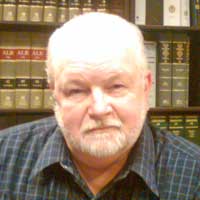 My mother died with this disease, not from it, but I’m sure it contributed to her death. If you know someone with Dementia these are some suggestions on handling their delicate situation. As we get up in age this is a possibility. One, I personally dread thinking about and pray to God it doesn’t happen to me. As a writer, these suggestions could be used for a character. If you remember the TV show 911 one of the characters, a 911 dispatcher, mother had dementia. In the show Friday Night Lights, the quarterback’s grandmother had dementia. Unfortunately, it’s all too common. The below suggestions were posted on Facebook by a friend of mine.
My mother died with this disease, not from it, but I’m sure it contributed to her death. If you know someone with Dementia these are some suggestions on handling their delicate situation. As we get up in age this is a possibility. One, I personally dread thinking about and pray to God it doesn’t happen to me. As a writer, these suggestions could be used for a character. If you remember the TV show 911 one of the characters, a 911 dispatcher, mother had dementia. In the show Friday Night Lights, the quarterback’s grandmother had dementia. Unfortunately, it’s all too common. The below suggestions were posted on Facebook by a friend of mine.
A Dementia patients wish list.
- If I get dementia, I want my friends and family to embrace my reality.
- If I think my spouse is still alive, or if I think we’re visiting my parents for dinner, let me believe those things. I’ll be much happier for it.
- If I get dementia, don’t argue with me about what is true for me versus what is true for you.
- If I get dementia, and I am not sure who you are, do not take it personally. My timeline is confusing to me.
- If I get dementia, and can no longer use utensils, do not start feeding me. Instead, switch me to a finger-food diet, and see if I can still feed myself.
- If I get dementia, and I am sad or anxious, hold my hand and listen. Do not tell me that my feelings are unfounded.
- If I get dementia, I don’t want to be treated like a child. Talk to me like the adult that I am.
- If I get dementia, I still want to enjoy the things that I’ve always enjoyed. Help me find a way to exercise, read, and visit with friends.
- If I get dementia, ask me to tell you a story from my past.
- If I get dementia, and I become agitated, take the time to figure out what is bothering me.
- If I get dementia, treat me the way that you would want to be treated.
- If I get dementia, make sure that there are plenty of snacks for me in the house. Even now if I don’t eat I get angry, and if I have dementia, I may have trouble explaining what I need.
- If I get dementia, don’t talk about me as if I’m not in the room.
- If I get dementia, don’t feel guilty if you cannot care for me 24 hours a day, 7 days a week. It’s not your fault, and you’ve done your best. Find someone who can help you or choose a great new place for me to live.
- If I get dementia, and I live in a dementia care community, please visit me often.
- If I get dementia, don’t act frustrated if I mix up names, events, or places. Take a deep breath. It’s not my fault.
- If I get dementia, make sure I always have my favorite music playing within earshot.
- If I get dementia, and I like to pick up items and carry them around, help me return those items to their original place.
- If I get dementia, don’t exclude me from parties and family gatherings.
- If I get dementia, know that I still like receiving hugs or handshakes.
- If I get dementia, remember that I am still the person you know and love.”
- If I get dementia, remember that if I don’t know who you are it’s not personal, introduce yourself I love meeting new people, be humble & kind…
—Joseph B. Haggerty Sr.
Author of the novels: Shame: The Story of a Pimp and An Ocean in the Desert Contributor to the PSWA anthology: Felons, Flames and Ambulance Rides Award winning poet, writer and lecturer on the sexual exploitation of women and children in prostitution and pornography. gudgerray@aol.com
THE JOY OF ANIMALS IN MYSTERIES
 Animals have always been a part of my life. Living with dogs, cats, and horses, I’ve scooped poop, scratched furry ears, doctored booboos large and small, and pulled all-nighters at the vet hospital. How could I create a fictional world without an animal to enhance the quality of life for its characters? Or meet the challenges they bring every day?
Animals have always been a part of my life. Living with dogs, cats, and horses, I’ve scooped poop, scratched furry ears, doctored booboos large and small, and pulled all-nighters at the vet hospital. How could I create a fictional world without an animal to enhance the quality of life for its characters? Or meet the challenges they bring every day?
Mystery author Jennifer Hawkins says it best: “A good mystery is about much more than solving a puzzle—it’s about appreciating what brings us joy.” For some of us, that joy is about good food, traveling to interesting places, or meeting people from history. But for many, furry creatures have a special place in our hearts. Remember the arrival of your first puppy? How about the first time you made your cat purr? Then, there’s my favorite—that nicker in the barn when your horse sees you coming.
Animals can also hone characterization. How the characters relate to animals tell the reader so much about who’s carrying the story and why. For example, my first novel, By Force or Fear, tells of an obsessed judge who stalks a sheriff’s deputy. Disregarding the writing commandment of not killing an animal, I wrote of the judge’s brutality by having him kill off the heroine’s cat, Gus. But over the following months, that rule kept kicking me in the shins so in the most recent edition, I brought Gus back to life. The judge still attacks the cat, but Gus fights back and survives. I also used horses to illustrate the judge’s ruthlessness in his brash polo riding. In this scene, he pushes the ponies into unnecessary collisions and his henchman finally calls him out over it. The fact that his own murderous thug protests shows the reader how brutal the antagonist is.
In later novels, I used horses for transportation and enjoyment. With Malice Aforethought features a scene where a murder victim is discovered during a trail ride in remote Sonoma County hills. The horse’s reaction to finding a corpse illustrates the horror of the situation. In my latest novel, Without Due Caution, I use a terrier pup to add humor and depth to the characters. There is also a humorous ongoing husband-wife discussion about getting a dog.
Last fall, I wrote the Layers of Mystery series under the CKN Christian Publisher’s house pseudonym Leanne Baker. In Sniffing Out Murder, the main character is a soon-to-be single woman fleeing Los Angeles to seek the refuge of her hometown of Bishop, California. As she drives north on Highway 395, she sees an injured dog on the side of the road.
This animal sharpens plot elements in these ways. First, he’s the instigator of her search to find her dying cousin (who the dog was guarding against a murderer). The natural protectiveness of the animal is reciprocated by the heroine. She stops to catch and care for the dog. The two have a symbiotic sense of care for others.
Second, the pooch becomes the focus of her action to treat his injuries and find his owner. She begins a hunt that leads to the dog’s owner—a police K-9 handler and her eventual love interest. Both finding a homicide victim and encountering a potential romantic relationship are crucial to the story. I could’ve used another device to achieve the same goals, but I find the presence of animals comforting as well as intriguing. I believe readers do, too.
Animals stir the reader’s emotion. They breathe life and heart to the story. The Layers of Mystery series also features Rusty, a mutt the heroine’s ex-husband holds as an emotional bargaining chip for his gain. This subplot stresses the heroine’s compassion while relating to her worthless ex. They had been married ten years. How could she turn off her feelings for him? She manages her emotions and puts the welfare of the dog first while preserving her ex’s dignity. Rusty becomes instrumental in several future adventures.
Animals in novels can be satisfying. They can also enhance the plot and flesh out the characters’ depth in interesting ways. That is, if authors obey the rules about not killing them off. Mario Puzo, author of the Godfather, might disagree but I’ll hold fast to this rule for all my future work.
—Thonie Hevron
Member News
 Bob Doerr is happy to announce his book No One Else to Kill , the fifth book in his Jim West mystery series, is now available as an audio book. You can find it at this link Amazon.com: No One Else to Kill: Jim West Series, Book 5 (Audible Audio Edition): Bob Doerr, Mike Steele, Bob Doerr Author: Books
Bob Doerr is happy to announce his book No One Else to Kill , the fifth book in his Jim West mystery series, is now available as an audio book. You can find it at this link Amazon.com: No One Else to Kill: Jim West Series, Book 5 (Audible Audio Edition): Bob Doerr, Mike Steele, Bob Doerr Author: Books
Additionally, his fifth book in his Clint Smith international thriller series, The Scientists, will be delivered to his publisher this month. Once this book is published this will bring Bob’s published books total to twenty-one.
Bob enjoying a Texas sized cinnamon roll.
THREE BOOK FLAPPER SERIES
BY CHARLENE BELL DIETZ
FEATURED AT TREASURE HOUSE BOOKS
Saturday June 17,1:30-3pm, Meet the Author, Book Event, Treasure House Books, 2012 S. Plaza, Old Town, Albuquerque, NM. The author’s three book Flapper Series will be offered with a purchase of buy two, get the third one FREE while supply lasts.
Charlene Bell Dietz writes science and historical-suspense, award-winning mystery novels and short stories. Her award-winning short stories have been published in the Rocky Mountain Fiction Writers 2016 Anthology and Southwest Writers 2019 Anthology. The Flapper, the Scientist, and the Saboteur combines family saga with corporate espionage. The Flapper, the Impostor, and the Stalker propels readers back into 1923 frenetic Chicago during the Roaring Twenties. Both these novels were named Kirkus Reviews’ Best Books of 2018, and each won the coveted Kirkus Starred Review. Her novel, The Scientist, the Psychic, and the Nut, gives readers a frightening Caribbean vacation. The second-edition of her fourth book, a biographical novel, starting in England in 1638 and ending in pre-colonial Maryland, will be released in February of 2024.
Charlene, a retired educator, traveled the United States as a consultant for Houghton Mifflin Publishers after a career of teaching little ones, older ones, and college graduates. Surrounded by forests and meadows, she currently lives in the foothills of the mountains in central NM several miles from the small village of Torreon. Charlene held her position of president of Croak & Dagger for several years, New Mexico Chapter of Sisters in Crime. She also belongs to Rocky Mountain Fiction Writers, Rocky Mountain Mystery Writers, Mystery Writers of America, SouthWest Writers, New Mexico Book Association and Public Safety Writers Association.
Connect with Charlene on Facebook, https://inkydancestudios.com/ or chardietzpen@gmail.com
Ellen Kirschman will again be on the faculty of the fabulous Book Passage Mystery Writers Conference along with fellow PSWA member Jim L’Etoile. Go here for more info – https://www.bookpassage.com/mwc-faculty-2023
Dear PSWA members, if you’re interested in writing a memoir or reading a brief memoir LifeStory shared by a guest, please subscribe to Marcia Rosen’s new blog at www.marciarosen.com. Marcia Rosen, is the author of 11 books and My Memoir Workbook, has presented numerous Memoir Writing Programs and Encouraging the Writer Within You Presentations for over 16 years, from New York to California and New Mexico!
New member Bill Soldato wrote Under Too Long by Billy the Liquor Guy. It is basically a true crime story about Bill’s 12-year undercover work after 911. His home office was in the South Tower. Under Too Long refers to the PTSD Bill has had from those 12 yrs.
The City of Utica Production company, Bill’s home town, is doing a video for promoting his upcoming second book, Making of Billy the Liquor Guy for future book signings, and to other streaming companies. Both books will be published thru Genius Publishing. His first book was published in January 2020. His second book is currently being edited.
Apple is currently working on a potential documentary for Bill’s undercover career. Billy the Liquor Guy is in both his books, along with The Good Muslim. The screenplay developed for his character utilized as Sadarius in a book written by the Director of Bill’s agency, Petroleum, Alcohol, Tobacco Bureau.
PSWA CORPORATE SPONSORS
Michael A. Black is the award-winning author of 48 books, most of which are in the mystery and thriller genres. He has also written in sci-fi, western, horror, and sports genres. A retired police officer from the Chicago area, he has done everything from patrol to investigating homicides to conducting numerous SWAT operations. Black was awarded the Cook County Medal of Merit in 2010. He is the author of over 100 short stories and articles, and wrote two novels with television star, Richard Belzer (Law & Order SVU). He did eleven novels under the name Don Pendleton in the Executioner series and numerous westerns the Gunslinger series under the name A.W. Hart (Killer’s Choice, Killer’s Brand, Killer’s Ghost, Killer’s Gamble, and Killer’s Requiem).His Executioner novel, Fatal Prescription, won the Best Original Novel Scribe Award in 2018. His latest novels are Chimes at Midnight and the ongoing Trackdown series, the latest of which are Devil’s Vendetta, Devil’s Breed, and Devil’s Reckoning. He is exceptionally proud that his latest short story, “Waiting for Godot,” was featured on the cover of the prestigious Alfred Hitchcock’s Mystery Magazine.
SL Ditmars is the award-winning author of the Big Dogs series. He is a retired police officer from Long Beach, California and has held positions in patrol, police K9, information technology, homeland security, counterterrorism, and police communications. He currently resides in Prescott, Arizona with his wife, Barbi, and their German Shepherd rescue, Gunnar.
Rick Barton – The ICISF is a non-profit that provides education, training and support for people who must cope with the trauma of exposure to critical incidents and primarily directed to first responders. Our founders and other people associated with the ICISF have written books. We also have an online bookstore that may be of service to members of the Public Safety Writers Association. www.icisf.org